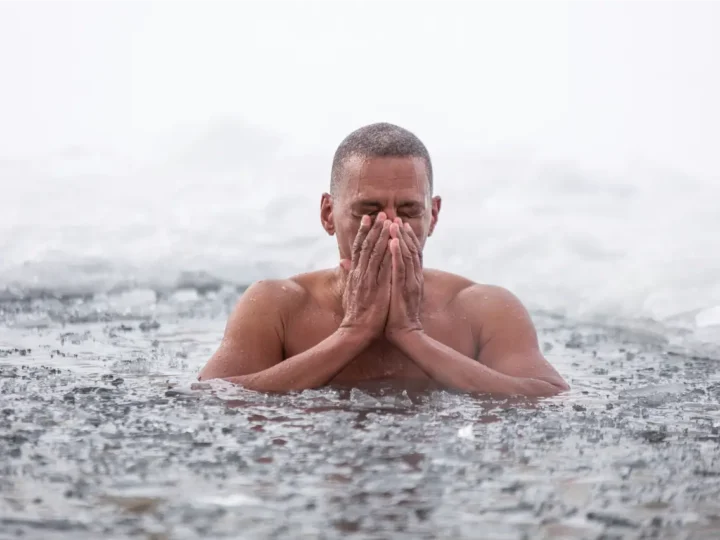If you are working out hard, you may have faced delayed-onset muscle soreness, which causes painful discomfort in the days following a challenging workout. There are things you may do to alleviate muscular aches, even if they can occasionally be a result of pushing your body to grow stronger. Utilize these suggestions to hasten your muscle recuperation so you can continue pursuing your fitness and wellness objectives!
Muscle soreness doesn’t have to go away by itself; you can treat it. You can get rid of aching muscles by using these scientifically supported ways.
1. Hydrate Yourself
Water consumption is crucial for overall well-being, post-workout recuperation, and muscle recovery. Aim for two gallons of water per day, or more if you exercise frequently, perspire a lot, or live in a warm climate. Is water sufficient if you frequently perspire?
Research on dehydration and recovery after exercise found that you must take enough replacement electrolytes in addition to a volume of fluid greater than your sweat loss. The majority of meals contain electrolytes, which are minerals including magnesium, potassium, limestone, and salt.
These minerals are crucial for maintaining a healthy neurological system, and muscle contractions deplete them. If you observe healthy eating habits and consume a lot of fruits and vegetables, you can acquire the electrolytes your body needs for muscle rehabilitation.
After your workout, drinking a glass of milk, coconut water, or a fruit smoothie will help replenish electrolytes in your blood and speed recovery.
2. Warm Up Before Workout

Investing the necessary time in a thorough warm-up may help to lessen the likelihood of injury and muscle discomfort. Before physically demanding exercises and actions like deadlifts and pull-ups, a proper warm-up is especially crucial. Dynamic stretching should be a part of your warm-up to activate the muscles you will be using, helping to avoid overstretching, strain, or injury throughout your workout.
3. Heating pad
Although you may have read for a long time that taking an ice bath is the greatest method to recover from the long run, experts advise against it in favor of a warm, soothing alternative. Heating pads work by expanding your blood vessels, which is supposed to boost blood flow. and it is believed that it might aid in removing some of the inflammation or byproducts associated with muscle discomfort from the muscles.
Heating pads can be comfortable, which is beneficial for healing because, frequently, all you need is some downtime to unwind. Heat can assist you to reach the places where waste materials are present since it promotes circulation.
4. A cold bath or Bath salts

Exercise that is too difficult for your muscles can lead to microtears, which can lead to edema, inflammation, and pain. This process is typical because the muscles are becoming stronger and responding to the burden.
A cold bath or bath salts can help decrease inflammation and speed recovery if you’re still hurting a day or two after your workout. A treatment called bath salts, which exposes the body to frigid or almost freezing temperatures, is also thought by some athletes to be effective in reducing muscular soreness. Always seek medical advice if you experience severe discomfort or pain that lasts longer than five days, or if you want to attempt a novel treatment.
5. Get a Massage Therapy
If self-massage is really not your way, you can get massage therapy from trained professionals. Massage after exercise helps muscles heal by eliminating inflammation. According to a review, massaging the muscles four hours after intense exercise can lessen pain and enhance muscle performance. Another study discovered that massage was superior to active recovery and contrasted hydrotherapy as a recovery technique.
However, massage is a great way to relieve painful muscles. According to one study, post-workout massage effectively lowered discomfort by lowering the body’s production of cytokines, which are substances that induce inflammation. The massage also triggered the mitochondria in the cells, encouraging cell health and repair.
6. Balanced Diet

Opposite to what you may have heard on some fitness websites, maintaining a balanced diet and getting enough sleep are the best ways to aid in your muscles’ recovery. The most crucial action you can take to enhance your muscle recovery is to lead an overall healthy lifestyle.
Poor diet and insufficient sleep cannot be made up for by any recuperation technique. Many people think they need pricey pills in order to get the most out of their workouts. Although some supplements offer advantages, unless you’re already taking care of the fundamentals, you won’t be able to maximize your performance.
7. Carbohydrates
For energy, your muscles store carbohydrates as glycogen. Your muscles utilize this glycogen as their main energy source during brief, intense workouts.
8. Tart cherry juice

According to research, consuming tart cherry juice after working out may lessen inflammation, muscle weakening, and inflammation.
While more studies are required to completely understand its effects, several of the ones that have already been published show promise. Four hundred milliliters per day is a typical dose applied in research.
9. Sleep More
Your muscles can heal from exercise while you sleep. Heavy workouts require considerably more sleep than the average person. According to reports, some professional sportsmen sleep 10 hours or more each night.
Lack of sleep may affect muscle recovery by affecting the body’s response to inflammation and the generation of hormones that promote muscular growth, according to research. It’s still unknown how exactly exercise and sleep relate to one another.
However, studies indicate that obtaining insufficient rest might hurt both performance and recuperation. After all, sleep has an impact on every function in your body, including the brain, heart, and lungs. In addition, it has a significant impact on immunity, psychology, metabolism, and disease resistance.




